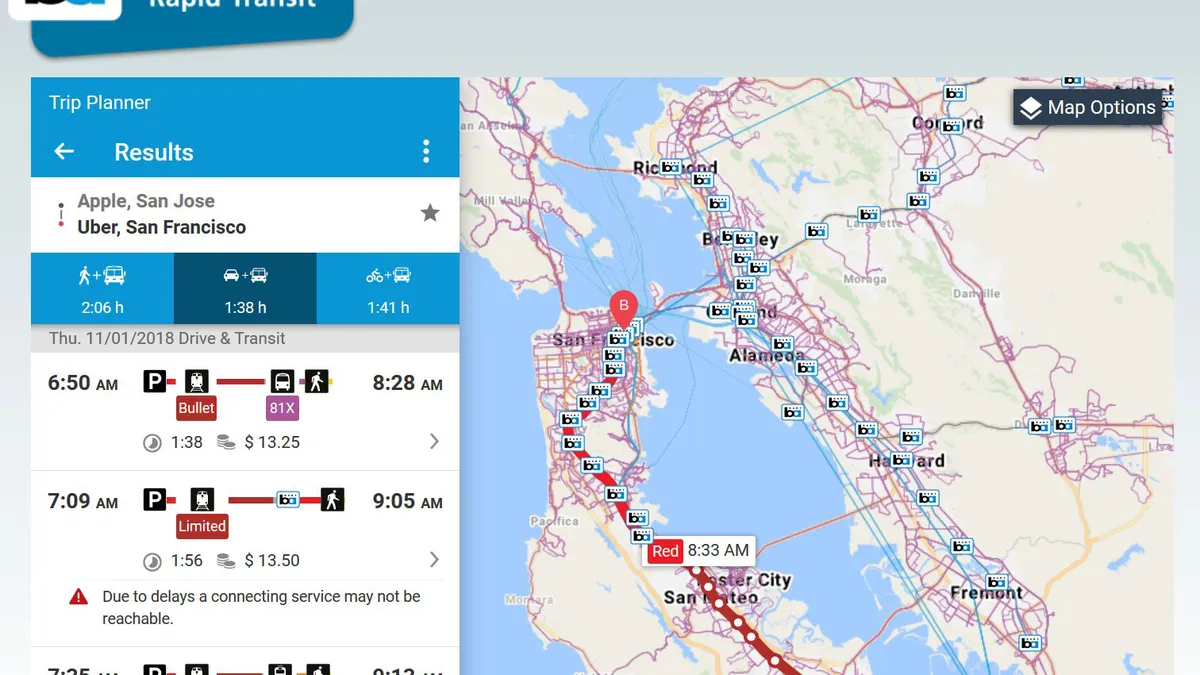Dive Brief:
- In collaboration with German company HaCon, Bay Area Rapid Transit (BART) rolled out a new trip planning app that will give riders information on driving, walking and biking routes in addition to real-time public transit information. Future versions of the app will incorporate bike-sharing and ride-sharing services.
- The app is meant to help riders understand real-time conditions and can replace the need for scheduled timetables for buses, trains, ferries and cable cars. It will also provide service advisories and train load information.
- "The new Trip Planner takes the hassle out of commuting because it provides a complete look at someone’s journey and offers a variety of ways to avoid traffic," said BART Chief Information Officer Ravi Misra in a statement.
Dive Insight:
The new app reflects how transit agencies are adapting to the wide range of mobility options, while still trying to position themselves as the centerpiece of the transportation space. A December survey from the American Public Transit Association (APTA) found that three-quarters of people see public transit as a "backbone" of a multi-modal lifestyle, even as ridership has been bumpy nationally and driving remains the main commuting options.
By creating an end-to-end app that shows detailed information like what exit to take from a station, BART can give consumers a better idea of their total trip, and how different travel options compare. In APTA’s survey, 74% of the millennials participating said they would use a Mobility as a Service (MaaS) app that compiled multiple transit options in one place, and many transit agencies are looking to do just that. Dallas Area Rapid Transit, for example, is planning to integrate information on scooters, car-sharing and micro-transit options like Uber Pool to its app.
Google recently took a similar step, incorporating real-time transit information into the new commuting feature in its Maps app, which will help users view different options for getting to and from work. Microsoft also partnered with urban mobility data firm Moovit to add transit data to Azure Maps and other Microsoft applications. Having more sophisticated transit information in a comprehensive MaaS app — especially train load and delay information — will help keep it front of mind for consumers and keep it as a key option even in an evolving mobility environment.











